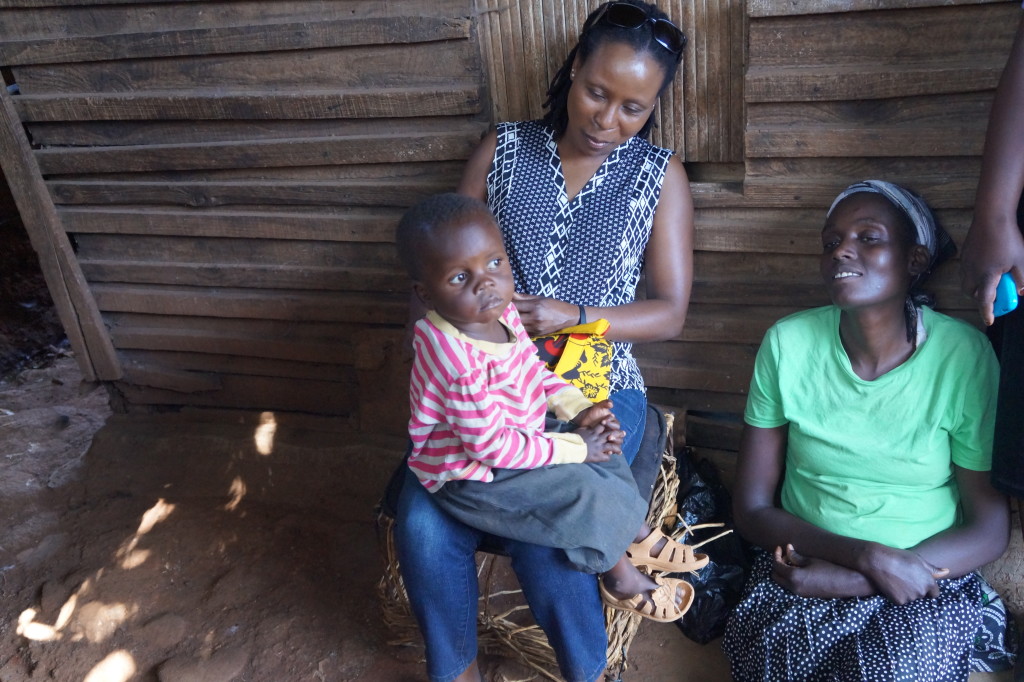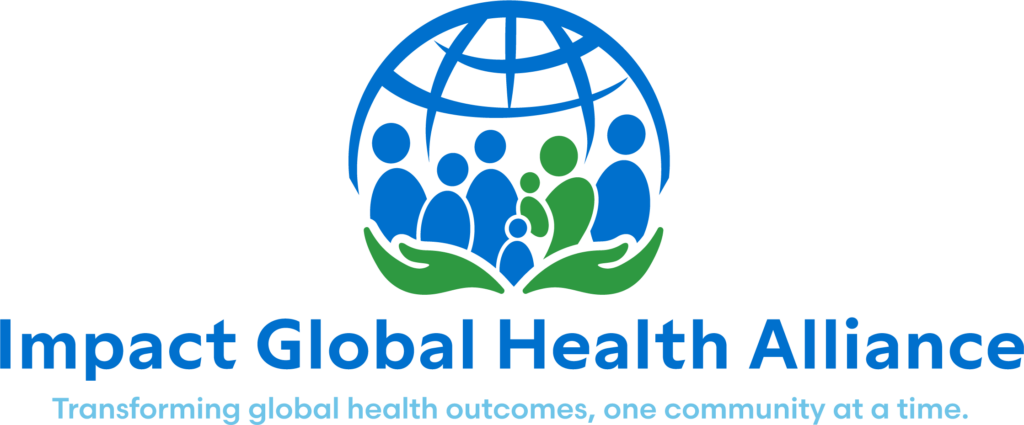Over the past 90 days, our partners at Carolina for Kibera (CFK) have been hard at work improving the health of mothers and children living in poverty in the Kibera slum of Nairobi, Kenya. Read more about the focus and accomplishments of the project below.
Fast Stats:
In the past 90 days the project has seen…
- 34 healthy births at health facilities.
- 270 women in the slum added to our health register, meaning they will receive regular follow-ups with health education and support through home visits.
- 854 household visits conducted for households with pregnant women and newborn babies.
No one knows how many people call Kibera, Kenya home. Estimates range from 200,000 to just under a million. It is a place known for its overcrowding, poverty and lack of access to sanitation services. Carolina for Kibera, a nongovernmental organization located in Nairobi and affiliated with UNC-Chapel Hill, coordinates projects focusing on providing health, social and economic opportunities. Impact Global Health Alliance Global provides technical assistance and training to CFK staff in order to improve the health of mothers and children living in the slum. CFK has made a concerted effort to improve child and maternal health outcomes by utilizing the Care Group model employed by Impact Global Health Alliance Global in other communities around the globe.
Maternal and Child Health in Nairobi Slums, Kenya
Important indicators of maternal and child health include maternal health care, birth outcomes, child vaccination and morbidity conditions. Antenatal care can prevent mothers and their infants from experiencing poor health outcomes such as premature delivery, low birth weight, pre-eclampsia, and death. Skilled healthcare workers are able to manage maternal complications, provide tetanus immunization, iron and vitamin supplementation and nutrition education. Tetanus vaccinations are especially important, as neonatal tetanus is one of the main causes of infant mortality among families living in poverty. Delivering in a healthcare facility with trained staff is crucial to having a safe, healthy birth. Last year, 40% of pregnancies worldwide developed complications. Finally, cough, fever and diarrhea are indicators for serious diseases, such as malaria, amongst children in Kenya.
Community Health Volunteers
With funding from Ronald McDonald House Charities (RMHC), CFK equips Community Health Volunteers (CHVs) with knowledge pertaining to several prevailing health issues, including maternal and child health. CHVs trained specifically on the latter help establish Care Groups, which provide education to pregnant women and lactating mothers and encourage them to attend health education classes at nearby clinics. These classes empower mothers to provide the best possible care for the children given their circumstances. Additionally, the CHVs teach the mothers about basic health practices that will keep their children healthy and safe from disease, such as breastfeeding and immunization.
Skilled Deliveries and Quality Antenatal Care
In the past 90 days, CHVs have registered 270 women for the education sessions and home visits. During home visits and education sessions, CHVs encourage women to go to health facilities during delivery in order to receive care from skilled birth attendants. All 34 deliveries made this quarter were completed at health facilities and attended by skilled birth attendants. All women who gave birth received follow-up visits from CHVs for seven days after delivery, as this is a high-risk period for new mothers.
Timely Health-Seeking Behavior
Each of the 14 community health volunteers conducted 10 sessions, covering topics on the danger signs during and after pregnancy, antenatal care, postpartum visits, and self-care during postpartum. Furthermore, during the past 90 days community health volunteers conducted 854 household visits to pregnant women and households with children under age five years to provide health education and referrals. CFK sought to improve the nutrition states of mothers, newborns and children under age five by conducting health talks with pregnant women on topics like nutrition, exclusive breastfeeding and early supplementary feeding and immunizations. CFK conducted nutritional screenings and nutritional status management and monitoring within the Kibera community.
Conclusions
CFK continues to adapt to the existing cultural frameworks of the communities in Kibera through collaboration and community mobilization. Impact Global Health Alliance has been working with CFK since 2012 to reduce child mortality and preventable diarrheal disease. Impact Global Health Alliance looks forward to continuing to partner with CFK to provide life-saving treatments and health education for mothers and children for years to come.
Article by: Victoria Vass, Development & Outreach Intern, Impact Global Health Alliance Global
Featured Photo Credit: Carolina for Kibera,





